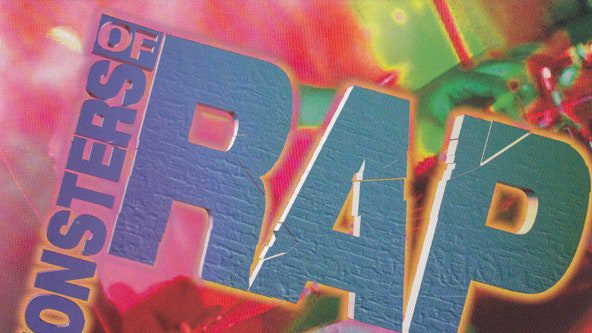
Kurtis Blow had a Sprite commercial, but Hammer had Pepsi sponsor a monster arena tour. Run-D.M.C. went platinum, but Hammer moved Whitney Houston numbers. Beastie Boys conquered rock radio, Hammer conquered radio itself. People derided the way Hammer jacked entire chunks of Rick James and Prince, but Puffy would build an empire off of “Take hits from the ’80s/But do it sound so crazy?” Hammer had a Saturday morning cartoon and dolls like the Beatles or the New Kids on the Block. He wasn’t the first rapper to find success, but he was the first to show that rap’s success wasn’t going to be defined by the limited imaginations of program directors, music video channels, and record labels.
Hammer’s success occurred in the space between Run-D.M.C.’s 1986 and Dr. Dre’s 1993. Run-D.M.C., teaming with Aerosmith for the literal and figurative wall-smashing of “Walk This Way,” proved that rap could work hand in hand with pop music. When “Nuthin’ But a ‘G’ Thang” hit No. 2, Dr. Dre proved that the most undiluted, uncompromising, unedited rap music was now pop music itself. As far as the music industry was concerned, everything in the six or so years in between was growing pains: What is this new sound that’s already successful beyond our control? And how do we sell it?
No document captures this moment better than Monsters of Rap, a two-disc, 35-track compendium of the once-omnipresent pop crossover sensations that brought hip-hop from the streets to the junior high school dance, including Hammer, Vanilla Ice, Young MC, Tone Loc, DJ Jazzy Jeff & the Fresh Prince, the Fat Boys, Technotronic, Snap!, C+C Music Factory and more. It was released in 1999 by Razor & Tie, nostalgia-miners who had success early in the decade with the ingratiating Those Fabulous ’70s compilations, and were presently riding high on the hair metal compendium Monsters of Rock. Shortly after the release of Monsters of Rap, Razor & Tie co-founders and producers Craig Balsam and Cliff Chenfeld would unleash the first volume of an ambitious new series named Kidz Bop.
Like its forebears, Monsters of Rap was crass, shameless, cheap-looking, somewhat incoherent and—at $26.99 plus $5.95 shipping and handling—not exactly inexpensive. It has the original version of Black Sheep’s “The Choice Is Yours,” not the iconic remix. Not available in stores, you bought it off the TV like a Shamwow. It sold more than 250,000 units but I could not tell you if I’d actually seen one before I bought a copy off Discogs for $6 to do this review. As compilations go, it’s not exactly comprehensive (a truly exhaustive overview of the ’90s pop-rap bubble would need Biz Markie, Marky Mark, Digital Underground, Kris Kross, and the asshole-era Beasties), but it’s most of the way there. It stands as the most complete compendium of the jiggiest era before the jiggy era.
